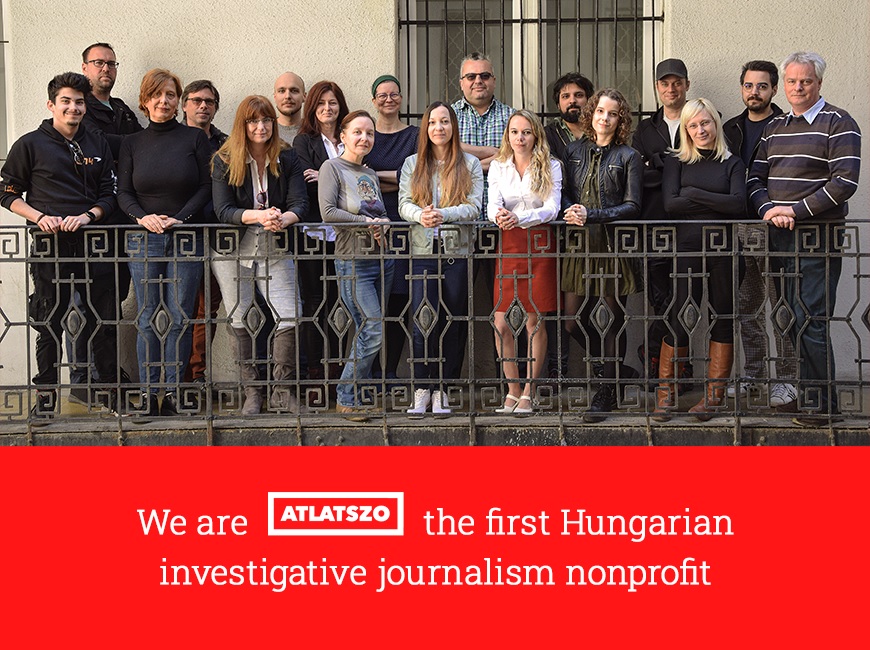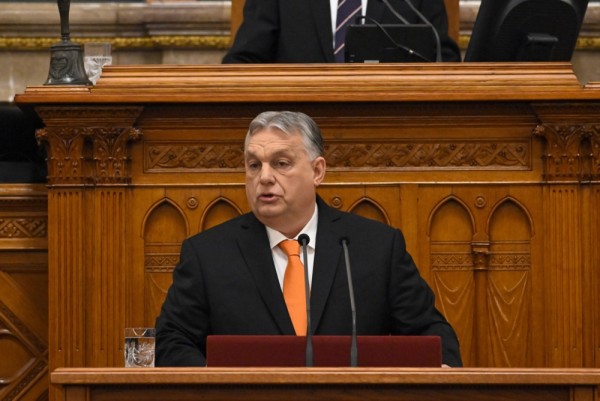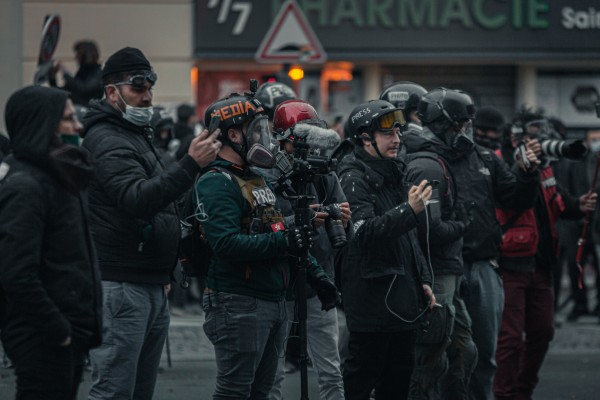IPI is deeply troubled by the growing chilling effect of Hungary’s Sovereignty Protection Act after award-winning investigative media outlet Átlátszó was accused of using foreign funds to “hunt down” Hungarian politicians. IPI stands with Átlátszó and urges Hungarian authorities to put an end to attacks on press freedom in the country.
The Civil Solidarity Foundation – Civil Solidarity Forum (CÖF-CÖKA), a Hungarian NGO closely aligned with the governing Fidesz party, made the accusation at a press conference on March 12. It also announced it was launching an investigation into the foreign funding of Átlátszó and NGOs including the Hungarian Helsinki Committee, Transparency International, and Amnesty International.
CÖF-CÖKA accused Átlátszó and other non-profits of conducting investigative work funded by, and therefore driven by, foreign interests. CÖF-CÖKA further said it would present its findings to the Sovereignty Protection Authority, established under Hungary’s controversial Sovereignty Protection Act.
Átlátszó is one of Hungary’s leading investigative journalism outlets, and has won numerous other awards for its reporting. In response, its journalists have been targeted with spyware and subjected to numerous smear campaigns. Last week, Átlátszó was presented with the Hungarian Press Prize by the Hungarian Association of Journalists to mark Hungary’s Press Freedom Day. On March 14, just after the public accusations were made, 20 Hungarian editorial offices issued a joint statement in support of Átlátszó.
The Hungarian chilling effect: how the Sovereignty Protection Act threatens the media
The accusations against Átlátszó underscore the potential threat that the Sovereignty Protection Act poses to what remains of independent media in Hungary. In particular, IPI is concerned that this case shows how the law can be used by pro-government groups to pressure and intimidate independent media.
The law, passed in December 2023, was widely criticised for opening the door to further state pressure on independent media. Many media rely on donor funds, including from international organisations and sources, because the government denies state advertising revenue and has distorted the media market against independent voices. In Hungary, independent media outlets have been repeatedly accused of serving foreign interests.
The Act established the Sovereignty Protection Authority with extensive powers to investigate individuals and organisations it suspects of receiving foreign funds to influence elections.
While specific references to media were removed from the law, its broad nature and vague definitions – including a mandate to investigate individuals and organisations for “illegally influencing the will of the voters” – provides another tool for the government to pressure its critics and stifle media freedom.
IPI stands with Átlátszó
IPI stands in solidarity with Átlátszó, and all journalists and media organisations facing threats and intimidation in Hungary.
The relentless pursuit of truth and transparency is essential for the functioning of a democratic society. We call on Hungarian authorities to respect and uphold the rights of journalists to operate without fear of reprisal or harassment.



